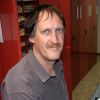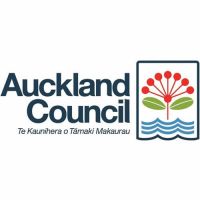Meet the team
 Our funders
Our funders
The 2018 Great Weeds Hunt Aotearoa project in Auckland and Canterbury is part of the Curious Minds MBIE funded Participatory Science Platform (PSP).
For 2018, The Brian Mason Scientific & Technical Trust co-funded more intensive community engagement in Canterbury.
![]() We also thank the BMT for their kind support in 2016 for Winning the War against Weeds delivery on the West Coast of the South Island.
We also thank the BMT for their kind support in 2016 for Winning the War against Weeds delivery on the West Coast of the South Island.
Scientists
Murray Dawson
Murray is a Landcare Research botanist dedicated to science communication and technology transfer. Murray led the development of the popular online Key to Weed Species of New Zealand.
Jon Sullivan
Jon is an ecologist and co-founder of iNaturalist NZ with extensive community engagement expertise. He is a Senior Lecturer at Lincoln University and has contributed to many Bioblitzes throughout New Zealand. Jon’s main research interest is weeds and he participated in 2016.
Hugh Gourlay
Hugh is a Landcare Research expert on the biological control of weeds and has engaged with many community groups. He has worked on biological control of gorse, broom, ragwort, old man’s beard, thistles, banana passionfruit, boneseed, St John’s wort, tutsan, and Japanese honeysuckle.
David Glenny
David is a Landcare Research botanist with extensive fieldwork experience. He is an expert in plant identification, flora and interactive key writing, and revising groups of native and naturalised plants. David participated in 2016.
Colin Meurk
Colin is a Research Associate of Landcare Research. He is an ecologist and co-founder of the acclaimed iNaturalist NZ platform for recording natural history observations. Colin created the Pest Plants (weeds) of NZ project.
Educators
Tread Lightly Caravan
The Tread Lightly Caravan team, Auckland’s mobile environmental classroom, joined us to deliver our teaching resources to schools of the Auckland Region.
Robinne Weiss
Robinne is an independent educator with a keen interest in science and insects. She developed the Landcare Research Weedy Lessons and Activities and will work through these with the students in the schools and when they visit our research centre at Lincoln.













